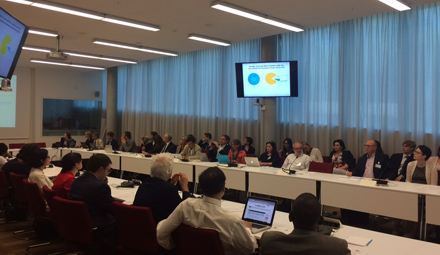From the Small Print to the Headlines: IFLA Engages for International Copyright Reform at WIPO
06 May 2016

IFLA will be represented at the World Intellectual Property Organisation (WIPO) Standing Committee on Copyright and Related Rights (SCCR) next week. Talk of copyright is normally consigned to the small-print. But in 2016, it seems to be just as regularly in the headlines.
As well as Prince’s creative genius, coverage of his passing focused on his tenacious efforts to protect his own copyright. SciHub – a site that is built on copyright infringement – has been shown to respond to student requests around the world. South Africa’s ongoing reforms give ground for hope, while the extension of protection in Jamaica was less encouraging.
The rest of the year won’t be any quieter. Changes in the EU and US are on the table, and following a report from the Australian Productivity Commission recommending a Fair Use principle, much now depends on the upcoming Australian elections there. And following controversy around copyright provisions in the Trans-Pacific Partnership, the tension is building around copyright provisions in two further major trade deals – TTIP and RCEP.
These discussions are important to libraries and archives, as it’s through exceptions and limitations to copyright that we can do our job – giving access to knowledge and culture as a basis for learning and enjoyment. But there is a lot of progress to be made, with as many different copyright regimes there as there are states, each giving different types and degrees of protection if any at all. Moreover, as digital technologies bring about radical change in the information environment, a failure to act is the same as going backwards. This is why IFLA is engaging in support of change both at the global (WIPO) level, and nationally.
We will therefore attend SCCR next week alongside some of our partner organisations from across the libraries and archives sector in order to make the case for changes which would give libraries the right to work across borders, to give access to orphan works, and to import books which are available in other countries. We will also be holding a side-event, looking at how digital is at the heart of libraries' work and what this means.
It is a long process, but the goal – an international framework which frees up libraries and librarians – is worth the effort. Follow us on Twitter, or read more here about how libraries work within the copyright system to support creativity, and the broader importance of exceptions and limitations.